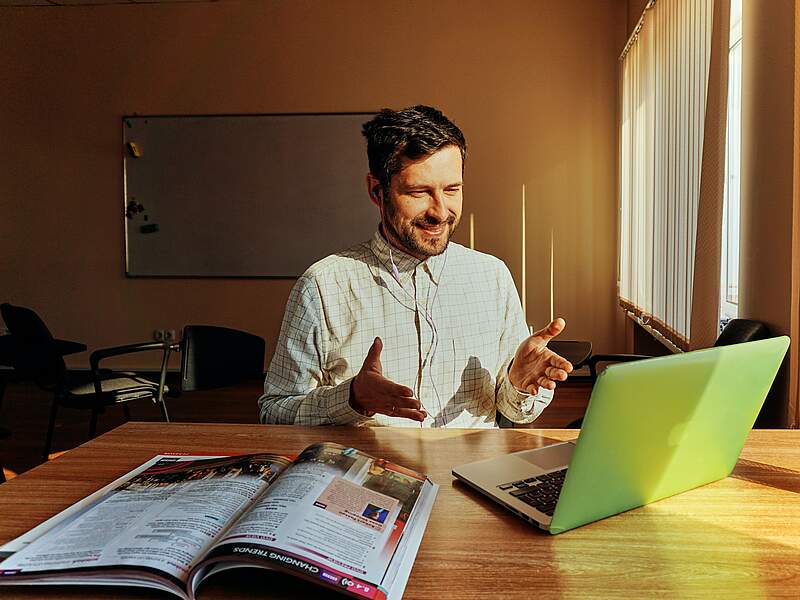In the wake of the Corona crisis, we all have to rethink and become creative in our private and business lives - even more creative than usual. Companies in all sectors are required to find solutions to entirely new problems in order to be able to continue to fulfil their orders. One of these challenges: Offering workshops online that can no longer be held on site.
1. What are the Basics for successful digital workshops?
If you have experience with workshops, you will know how demanding they are: Facilitators and participants have to remain highly concentrated for several hours and deliver valuable results on essential issues. If such a workshop is to take place online, there may be additional disruptive factors. Reduce these to a minimum to allow all participants to concentrate as much as possible. All participants should pay attention to the following:
- A flawless internet connection
- An undisturbed place
- A functioning equipment such as microphone/headset and camera
2. 5 things, at the you about moreover pay attention to should pay attention to...
Once all the basic requirements have been met, it's down to the nitty-gritty. Much of this applies to the same extent for live workshops, but despite this, or precisely because of this, you should take enough time for it. Especially previously unknown details are easily overlooked.
3. The correct preparation
First, an online workshop is prepared in the same way as a live workshop: What is the overarching theme? What questions need to be answered? How can these questions be answered effectively? Discuss with your team and always keep in mind the technical know-how of all participants: who needs support? Are the media easy to understand and implement?
4. The right media and tools
Keep the following in mind: You need a medium through which you can communicate with each other (telephone or video conference) and one through which all participants can compile their results simultaneously (e.g. Google Jamboard). In the meantime, there are also tools that offer both functions(Miro).
For communication, we recommend a video conference. Many programmes offer you the possibility to share your screen. For example, you can give an intro presentation or show documents without having to send them.
Now let's get to work: What tools do you use in live workshops(design thinking tools, role plays, etc.)? Can you also use these online? If so, how do you go about it? Of course, the moderator can stand in front of a whiteboard during the video conference and take answers on demand. But there are already programmes that work like a virtual whiteboard: for example, Google Jamboard, which is part of G-Suite, or Miro - a tool that is a virtual whiteboard and video conference in one. On Miro, you can already choose certain design thinking tools as templates for your whiteboard. On your Google Jamboard, you can even insert images and use them as backgrounds - provided that your template has the appropriate format (16:9). In this way, you can create pre-structured task templates, for example. Your tasks thus become clearer and can be explained vividly.
5. Test run
Once you have selected the appropriate tools, test them and the procedure - several times. It is advisable to carry out an internal test run to try out all the possibilities that the tools offer you and to be able to explain the procedure later. Then ask all participants for a short technology check-up - preferably one day before the actual workshop. This way you can be sure that everyone is comfortable with the technology and the online tools provided and that you can start directly on the workshop date.

6. Enough breaks
Expect several short breaks. You do not have to set the times in advance, but take the necessary time into account in your planning.
7. Sensitive Time management
In our experience, digital workshops are even a touch more demanding than live workshops. Do not underestimate this. Allow enough time for the tasks, but also keep an eye on the overall duration. If it exceeds half a day, consider splitting the workshop into two sessions. You will get better and more sustainable results with clear heads.
8. Conclusion: Digital workshops remain also after Corona interesting
In order to master new challenges, we have to think in new ways. This can be a burden, but at the same time it is an opportunity to develop in new areas. Digital workshops not only help us through the crisis. The newly acquired know-how will also enable us to work more flexibly and efficiently in the future.

